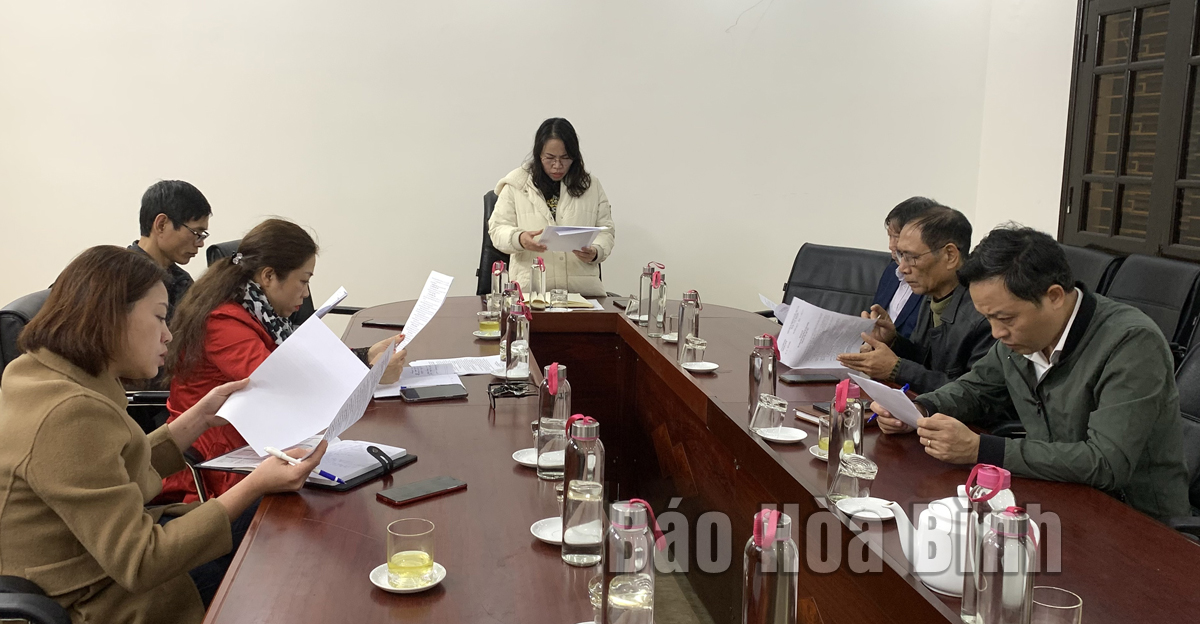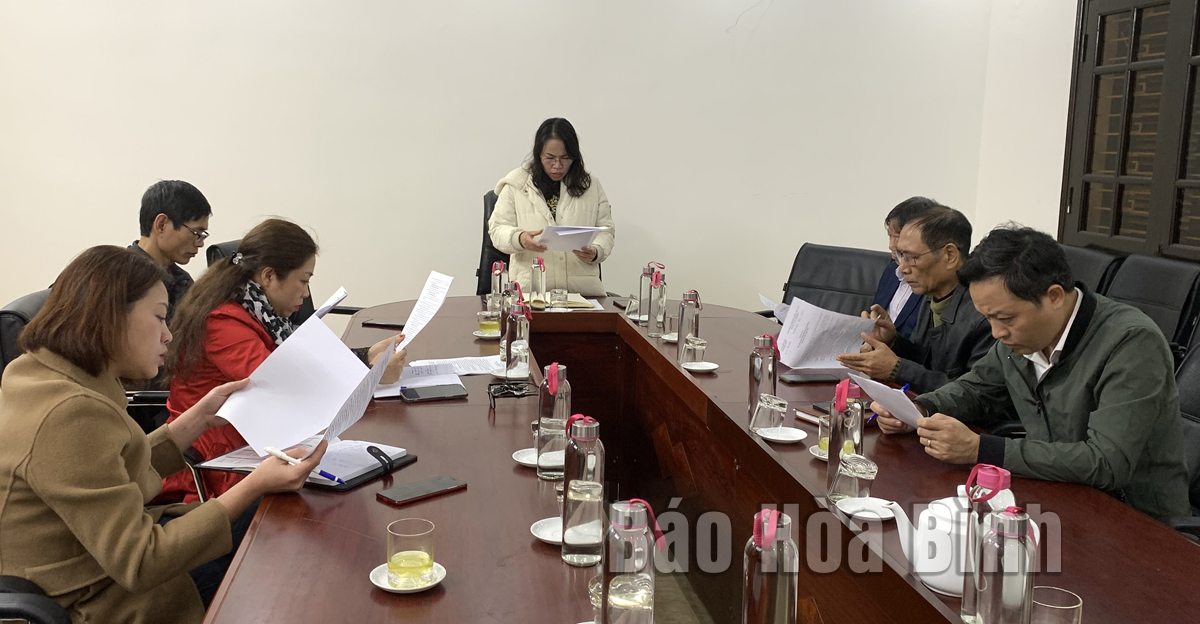
(HBO) - On December 26, the Department of Culture, Sports and Tourism held a meeting to implement the plan of the Provincial People's Committee on building the symbol of the antelope to celebrate the Lunar New Year, 2023.

The delegates are discussing the
content of building the symbol of the antelope to celebrate the Lunar New Year,
2023.
According to the plan, the symbol
of the antelope is installed at Hoa Binh Square. The front face is the Cat
family gathering to welcome spring (including 9 cats: the father cat, the
mother cat and 7 kittens) which are lively, playful and happy together. The two
sides and the back are the clusters of secondary symbols, showing the culture
of Hoa Binh homeland such as: the symbol of Can alcphol Lam rice and the
clusters of fortune symbols welcoming spring, the yellow cat, the stylized
decorative cat... The main part in front is the welcoming gate, the clusters of
spring flowers and the two sides of the wings are the clusters of the models of
the stylized Cat, creating a joyful image to welcome the New Year with 2 sets
of shape letters "the joyful Tet - Quy Mao spring. Besides, there is a photo
exhibition with the theme "Hoa Binh Homeland”.
The construction period from
December 25, 2022 to January 16, 2023. The display period is from January 16,
2023 to the end of January 31, 2023 (December 25 of the Year of the Tiger to
the end of January 10 of the Year of the Rabbit). The ribbon-cutting ceremony
is expected to take place at 3:30 p.m. on January 14, 2023 (December 23 of the
Year of the Tiger).
Based on the assigned plan and
tasks, the relevant units are urgently developing the detailed plans so that
the construction and installation of the symbols can be ensured according to
the plan. Thereby, it creats a joyful and exciting atmosphere to serve the
people to enjoy the spring and celebrate the national traditional New Year. It
also creats a tourism highlight, attracting tourists to Hoa Binh city and Hoa
Binh province on the occasion of the Lunar New Year, 2023.
With an increasingly vibrant and widespread emulation movement aimed at building cultured residential areas and cultured families, Yen Thuy District has been making steady progress toward improving both the material and spiritual well-being of its people, while fostering a civilized, prosperous, beautiful, and progressive community.
Once lacking recreational spaces and community facilities, Residential Group 2 in Quynh Lam Ward (Hoa Binh City) has recently received attention for the construction of a new, spacious, and fully equipped cultural house. The project followed the model of state support combined with public contributions in both labor and funding.
The "All people unite to build cultural life" movement, which has been effectively integrated with Kim Boi district’s socio-economic development goals, is fostering a lively spirit of emulation across local residential areas, hamlets, villages, public agencies, and enterprises. In addition, through the initiative, traditional cultural values are being preserved and promoted, while community solidarity and mutual support in poverty reduction and economic development are being strengthened.
A working delegation of the Hoa Binh provincial People’s Committee led by its Permanent Vice Chairman Nguyen Van Toan on June 11 inspected the progress of a project to build the Mo Muong Cultural Heritage Conservation Space linked to tourism services in Hop Phong commune, Cao Phong district.
Born and growing in the heroic land of Muong Dong, Dinh Thi Kieu Dung, a resident in Bo town of Kim Boi district, in her childhood was nurtured by the sweet lullabies of her grandmother and mother. These melodies deeply imprinted on her soul, becoming an inseparable part of her love for her ethnic group's culture. For over 20 years, this love for her hometown has driven Dung to research, collect, and pass down the cultural values of the Muong people to future generations.
In the final days of May, the Ethnic Art Troupe of Hoa Binh Province organized performances to serve the people in remote, mountainous, and particularly disadvantaged areas within the province. These were not just ordinary artistic shows, but they were the meaningful journeys aimed at spreading cultural values, enhancing the spiritual life of the people and contributing to the preservation of ethnic minority cultural identities.



